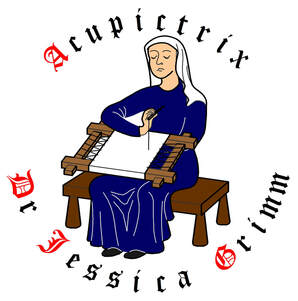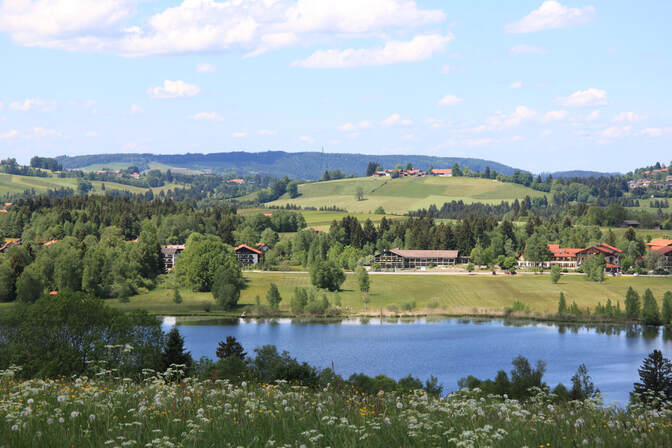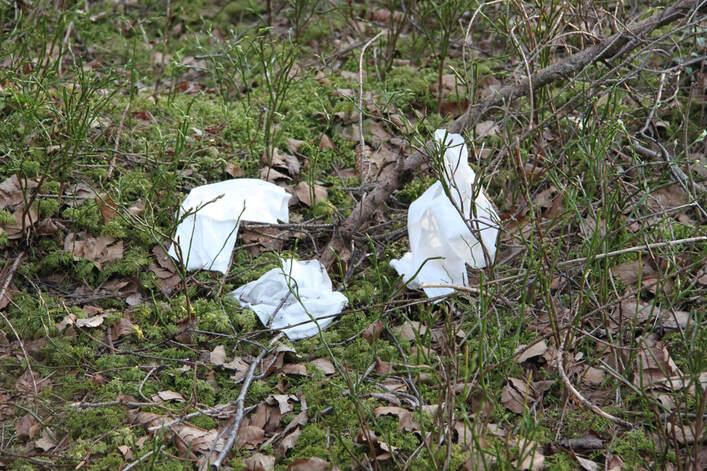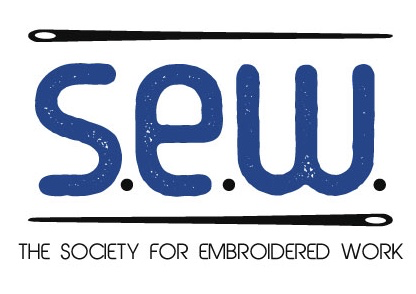|
In the past, I have rarely written about anything else than embroidery. And I don't intend to write more often about non-embroidery topics. However, tomorrow is an important day for me and my husband. The village council will meet and debate the litter data my husband and I have collected for the past three months or so. What did we do? Each year, we commit to a certain challenge for Lent. It is usually the "no cookies" or "no chocolate" 40-day challenge. But with the unpleasant pandemic restrictions, I did not want to restrict myself any further this year. Instead, we were looking for something to make a positive impact on our community. At the same time, as the weather improved, more and more people visited our beautiful lake. Not being able to leave the country means that many Germans now recreate in the Alps. This has a negative impact on this sensitive ecosystem. Especially littering has become a huge problem. So we decided to dedicate several hours each week to clean-up using the Litterati app. As archaeologists, we are perfectly skilled to analyse the litter data collected and advise our village council. Tomorrow, they will debate several data-based solutions we have come up with.
Those of you who have visited my studio here in Bad Bayersoien, know what a beautiful place this is. Our village is actually located in Nature Park "Ammergauer Alpen". Protected wildflowers and certain rare animal species are living here. The lake is part of a bog landscape. And along one side of its shore, is one of Europe's largest habitats for European vipers. Especially at this time of year, these beautiful black snakes sunbathe right next to the walking trail. Unfortunately for them, women who need to pee, tend to go into the shrubs and woods of viper territory. It is a wonder that so far no one got bitten! How do we know it is women who like to pee here? They leave hundreds of tissues ... You might think that a paper tissue dissolves easily and does not harm nature too much. However, these tissues are no longer made of paper, but of bleached cellulose. And they don't easily decompose. And it doesn't stop at the tissues. Some even leave sanitary towels, tampons and adult diapers there!
You are forgiven for thinking, since we live so rural, that we don't have clean free public toilets here and that these women need to pee somewhere. Thankfully, we have a spacious toilet block right opposite the kiosk (from the trail, you are never more than 500m away from them!). The toilets are clean and free to use. Why are the woods then so popular? Probably because people park after a long drive and don't have time to search for the toilets. Not everyone knows that there are clever apps for your phone that tell you where (free) toilets are located. A good solution for our lake would be to place signs that point people in the right direction. Using a bit of humour could persuade people to walk that 500m (picture a woman squatting being bitten by a viper :)).
Another huge problem is the many cigarette butts being thrown away carelessly. Again, many people assume that they decompose. Wrong. They are made of cellulose acetate. Filled with the toxins of smoking, this substance falls apart in smaller and smaller bits. Just like micro-plastic, it lands in our drinking water and cannot be removed in water treatment plants. We all drink cigarettes each day when we make ourselves a cup of tea or coffee. Getting these cigarette butts removed from our environment is absolutely paramount. We are slowly but surely poisoning ourselves.
How can we persuade people to dispose of their cigarette butt correctly? Again: we hope to use humour! There is a German company that makes Kippsters. These are ashtrays with two see-through compartments. Above the two compartments is a yes/no question. People can "vote" using their cigarette butt. If our village decides to invest in a few of these kippsters, I am going to sponsor one. And I already know which question I want to get answered: Was King Ludwig II queer?
Maybe, I have inspired you to start cleaning up in your own community using the Litterati app (or maybe you are already doing something similar!). The app was originally invented in the US, but it has had the biggest following and impact in the Netherlands. Watch the inspiring TED-talk with Jeff Kirschner, the founder of Litterati. Due to the pandemic, they regularly organise webinars on the topic of littering and data-based solutions. Archaeology with modern litter :).
What were the strangest finds in the past couple of months? Well, you would be amazed at how many fake nails are lost. Or how about a small device to re-set your pacemaker? And this morning we found a urinary catheter in its original packaging! When we tagged our pictures in the Litterati app, it turned out that we were not the first in the world who had found one ....
8 Comments
Annelot
10/5/2021 16:05:55
Ik heb vaak n kip en ei gevoel bij het verzamelen/opruimen van afval op straat. Als er toch iemand is die t opruimt, kan ik m'n afval best op straat gooien. T enige wat schijnt te helpen is n smetteloze omgeving, omdat t afval dat je weggooit dan extra opvalt. Twee tegenstrijdige bewegingen.
Reply
10/5/2021 16:13:56
Dat is precies de reden dat we het niet alleen maar op wilden rapen. Dat heeft inderdaad maar heel beperkt effect. Alleen als wij echt elke dag, het liefts twee keer, een rondje lopen, blijft het redelijk schoon. Maar dankzij de app, kunnen we precies zien wat waar ligt en actie ondernemen. Soms is het gewoon een vuilnisbak die aan de verkeerde kant van het pad staat. Of dus bordjes naar de toiletten. Nu maar duimen dat de heren van de gemeenteraad te overtuigen zijn met data gebasseerd op meer dan 13.000 stukjes afval :).
Reply
Darcy Walker
10/5/2021 22:37:13
Congratulations on being so pro-active in your community. Proud citizen you are! Setting a good
Reply
11/5/2021 08:20:53
Thank you, Darcy! Let's see what we will find today :).
Reply
Jane Setter
11/5/2021 01:12:43
What a very interesting read Jessica. You have inspired me. In our country we have an annual event called ‘Clean up Australia’ where 100s of volunteers clean up around their local area. I am not sure that their finds are analysed though. Will have to do some research.
Reply
11/5/2021 08:25:14
You are very welcome, Jane! Yes, we have a local clean-up twice a year. And we have tried to activate the usual volunteers to make it a monthly thing for years. But people are so busy :). Getting them to use an app is impossible as most don't have a smart phone (Germany, especially the rural areas, lack behind when it comes to digital solutions). However, us collecting and analysing the data has a positive effect on the whole region. People are ashamed. Never underestimate the power of shame in small close-knit communities!
Reply
12/5/2021 08:47:52
Me too, Rachel! I hope they tell me the outcome some time today.
Reply
Your comment will be posted after it is approved.
Leave a Reply. |
Want to keep up with my embroidery adventures? Sign up for my weekly Newsletter to get notified of new blogs, courses and workshops!
Liked my blog? Please consider making a donation or becoming a Patron so that I can keep up the good work and my blog ad-free!
Categories
All
Archives
July 2024
|
Contact: info(at)jessicagrimm.com
Copyright Dr Jessica M. Grimm - Mandlweg 3, 82488 Ettal, Deutschland - +49(0)8822 2782219 (Monday, Tuesday, Friday & Saturday 9.00-17.00 CET)
Impressum - Legal Notice - Datenschutzerklärung - Privacy Policy - Webshop ABG - Widerrufsrecht - Disclaimer
Copyright Dr Jessica M. Grimm - Mandlweg 3, 82488 Ettal, Deutschland - +49(0)8822 2782219 (Monday, Tuesday, Friday & Saturday 9.00-17.00 CET)
Impressum - Legal Notice - Datenschutzerklärung - Privacy Policy - Webshop ABG - Widerrufsrecht - Disclaimer








 RSS Feed
RSS Feed